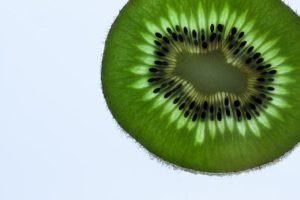4 Foods that Help You Sleep Better and 3 to Avoid

 Sleep has come to the forefront of the nation’s consciousness as we’ve come to understand its connection to almost all aspects of physical, mental, and emotional health. Diet can have a powerful impact on your ability to fall and stay asleep. Some foods have nutrients like calcium and tryptophan that are integral to making the sleep hormone melatonin. Eating sleep-friendly foods throughout the day, especially in the evening, can help your body transition to sleep without a hitch. But, be careful, there are other foods that do just the opposite.
Sleep has come to the forefront of the nation’s consciousness as we’ve come to understand its connection to almost all aspects of physical, mental, and emotional health. Diet can have a powerful impact on your ability to fall and stay asleep. Some foods have nutrients like calcium and tryptophan that are integral to making the sleep hormone melatonin. Eating sleep-friendly foods throughout the day, especially in the evening, can help your body transition to sleep without a hitch. But, be careful, there are other foods that do just the opposite.
What to Eat for Better Sleep
Tryptophan-rich foods
Tryptophan gets blamed for many post-Thanksgiving couch comas, but it’s in more foods than just turkey. Milk, yogurt, cheese, and other dairy products also contain tryptophan along with fish, tofu, beans, and many nuts and seeds. Tryptophan is used by the body to make serotonin, which is then metabolized into melatonin, the sleep hormone that triggers the start of the sleep cycle.
Tart (Sour) Cherry Juice
If you want to jump right to a source of natural melatonin, tart cherry juice is your best option. The melatonin in the juice naturally promotes the sleep cycle while the antioxidants cleanse the body.
Foods with Serotonin
 Serotonin, like that found in kiwifruit, is used by the brain to produce melatonin. One study found that when participants ate a kiwi one hour before bed, they fell asleep 42 percent faster than usual. They also showed a reduction in the number of times they woke up during the night. Cheese, pineapple, and salmon are other good sources of serotonin to incorporate into your diet.
Serotonin, like that found in kiwifruit, is used by the brain to produce melatonin. One study found that when participants ate a kiwi one hour before bed, they fell asleep 42 percent faster than usual. They also showed a reduction in the number of times they woke up during the night. Cheese, pineapple, and salmon are other good sources of serotonin to incorporate into your diet.
Bananas and Other Sources of Potassium
Potassium relaxes the muscles, which is why runners stay stocked up on bananas if they struggle with muscle cramps. However, it’s also easier to fall asleep when you’re muscles are fully relaxed. Bananas also contain magnesium, another nutrient that’s linked to better, more restful sleep. Nuts, beans, and whole grains are other good sources of both of these nutrients.
Foods that Don’t Help
Food can help with sleep, but it can also get in the way. Watch out for:
- Fried (High Fat) Foods: The body has to work to digest and metabolize these foods, leaving you overfull and bloated. The discomfort alone can keep you awake.
- Caffeine: Stimulants like caffeine linger in the body and block sleep hormones for several hours. Avoid them for the four to six hours before bed. Watch for less obvious sources of caffeine like chocolate and soda, which have lower doses than energy drinks and coffee but can still keep you awake.
- Alcohol: Alcohol alters the nature of your sleep cycle. It may make you sleepy at first, but it causes the body to stay in the lightest sleep stages later in the night. Consequently, it leads to more wakefulness in the early morning hours.
Set Yourself Up for Sleep Success
 All the sleep-supportive foods in the world can’t help you sleep better if you’re not set up for sleep success. Make sure your mattress fully supports your body weight and preferred sleep position. For example, side sleepers often prefer the contouring effect of memory foam while stomach sleepers need the firmer surface of an innerspring mattress to keep their spine aligned.
All the sleep-supportive foods in the world can’t help you sleep better if you’re not set up for sleep success. Make sure your mattress fully supports your body weight and preferred sleep position. For example, side sleepers often prefer the contouring effect of memory foam while stomach sleepers need the firmer surface of an innerspring mattress to keep their spine aligned.
Set a bedtime and stick to it. Finally, develop a bedtime routine that transitions your body into the sleep cycle. It can even include a light snack with foods or drinks from our sleep-supportive food list.
Improved eating habits and an awareness of your sleep habits can help you get the rest you need. With adequate sleep comes the energy to live an active life and give your body the chance to function at its best.
You must be logged in to post a comment.